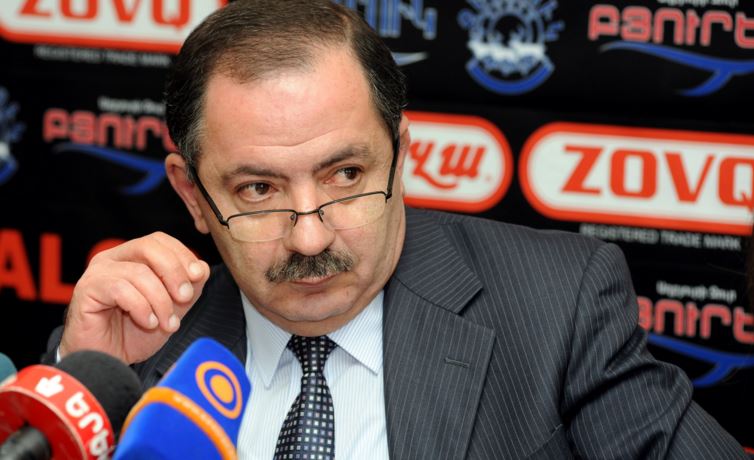YEREVAN (A.W.)—Speaking to reporters after meeting with members of the Venice Commission and the Organization for Security and Cooperation in Europe’s (OSCE) Office for Democratic Institutions and Human Rights (ODIHR), Armenian Revolutionary Federation (ARF) Parliamentary Faction Secretary and newly appointed Deputy Chairman of Standing Committee on Financial-Credit and Budgetary Affairs Aghvan Vardanyan shared his party’s observations on the draft electoral code. According to Vardanyan, the code calls for the opposition to occupy a third of Parliamentary seats.

Aghvan Vardanyan (Photo: Photolure)
“Even if one or more political powers are able to secure a majority; that should not stand in the way of the opposition to realize its constitutional authority,” said Vardanyan. The ARF Faction secretary also told reporters that the use of various technologies to prevent voting fraud were discussed. The draft proposes compiling lists of and registering voters electronically; according to the draft, this would clarify whether citizens are eligible to vote and whether they have already voted. The system will automatically print a ballot only if it recognizes the voter and verifies that s/he has not yet voted.
One of the major demands from opposition groups concerned about electoral fraud has been to publish voter lists after elections, which the draft electoral code does not stipulate. Vardanyan said that while the ARF supports publishing voter lists, there should also be an effort to find other mechanisms to prevent fraud.
Vardanyan also stressed that the new electoral code limits the number of observers and journalists allowed in voting precincts; something that Vardanyan said is “incomprehensible” to the ARF. Vardanyan also said that the mandatory inclusion of representatives of minority parties, proxy voting, as well as several other issues were discussed with the European experts.
Armenia’s government endorsed a new draft electoral code on March 3. Parliamentary elections, according to the code, will be the only national elections to take place in Armenia, and will be conducted entirely by proportional representation. The draft was published by the government of Armenia on March 2, several days after its English version appeared on the Venice Commission’s website—a move that has been criticized by the opposition, according to ArmeniaNow.
At a cabinet meeting, Minister-Chief of Government Staff David Harutyunyan announced that the draft confirmed by the government differs from the one submitted to the Venice Commission. He also said that international experts are expected to visit Armenia in mid-March, when they will be familiarized with the changes made to the draft after it was sent to the commission, reported ArmenPress. Harutyunyan added that the draft can be used as the basis for public discussions.
Armenian President Serge Sarkisian has urged parliament to adopt the code by June. Under the new system, Armenia would work with a minimum of 101 parliamentary seats with a 5-year term elected entirely by proportional representation. Under the current system of government, there are 131 members of parliament, with 41 elected in first-past-the-post constituencies and the rest by proportional representation. The draft code also suggests establishing 13 electoral districts to replace the existing 41—4 in Yerevan and 9 in the provinces. Local elections would also be based on a proportional voting system, with city councils electing mayors.
Source: Armenian Weekly
Link: ARF Meets with European Experts on Armenia’s Electoral Code